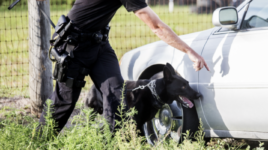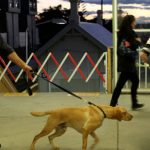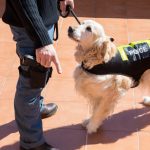When Can Police Search Your Vehicle in New South Wales?

Police in New South Wales are not permitted to search persons, vehicles or premises without sufficient reason.
In the absence of a lawfully obtained warrant, officers must have reasonable grounds to conduct a search, and can find themselves on the wrong side of the law if they neglect to follow the rules.
Here’s an outline of the law when it comes to warrantless searches of vehicles such as cars, vans and trucks in New South Wales.
The rules for police searches of vehicles
Section 36 of the Law Enforcement (Powers and Responsibilities) Act 2002 (the LEPRA) provides that a police officer in New South Wales is empowered to stop, search and detain a vehicle without a warrant if the officer ‘suspects on reasonable grounds’ that:
- The vehicle contains, or a person in the vehicle possesses or controls, anything stolen or otherwise unlawfully obtained,
- The vehicle is being, was or may have been used in connection with an offence,
- The vehicle contains anything used or intended for use in connection with an offence,
- The vehicle is in a public place or school and contains a dangerous article that is being, was or may have been used in connection with an offence,
- The vehicle contains, or a person in the vehicle possesses or controls, a prohibited drug or prohibited plant, or
- Circumstances exist in or near a public place or school that are likely to give rise to a serious risk to public safety and stopping, searching or detaining the vehicle may lessen that risk.
A ‘dangerous article’ could include:
- A firearm, firearm barrel or firearm ammunition, a spear gun, an articles or device capable of discharge or any other prohibited weapon;
- Any irritant in liquid, powder, gas or chemical form or any dense smoke; or
- Any substance capable of causing bodily harm.
‘Prohibited drugs’ are those listed in the Drug Misuse and Trafficking Act 1985, and include cannabis, amphetamines, cocaine and heroin.
A ‘public place’ is a place or part of a premises that is open to, or used by the public, whether or not for payment, and whether or not only open only to a limited class of persons, this includes privately owned places that are open to the public.
Crucially, an otherwise unlawful search of a vehicle will become lawful if a person provides informed consent to the search.
What constitutes a ‘reasonable suspicion’?
Determining whether or not a search of a vehicle is lawful largely depends on whether the police officer involved had a reasonable suspicion that certain circumstance apply.
In the case of R v Rondo [2001] NSWCCA 540, it was established that a ‘reasonable suspicion’ should involve less than a reasonable belief, but more than a possibility. And there must be a factual basis upon which the suspicion is formed.
The case involved John Rondo, who was pulled over in his mother’s sports car in 1999, after officers ascertained the vehicle did not belong to him.
The police then searched the car and found cannabis in the glovebox. A subsequent search of his home resulted in the seizure of 59 cannabis plants.
The District Court of New South Wales found Rondo guilty on that basis of supplying a prohibited drug and cultivating a prohibited plant.
However, on appeal, the three-judge panel of the New South Wales Court of Criminal Appeal found that a young man driving someone else’s sports car was not sufficient to give rise to a reasonable suspicion and warrant the stopping of the vehicle. Rondo was subsequently acquitted.
Under section 148 of the LEPRA, New South Wales police officer may utilise a sniffer dog without a warrant in a range of ‘authorised places’ to signal a positive indication of the presence of illegal drugs on a person or the surrounds of a vehicle, which may be used as a contributing factor to form a ‘reasonable suspicion’ for a search.
However, it should be added that positive indications by sniffer dogs have been determined as insufficient in and of themselves to form a reasonable suspicion for a search, due to the high percentage of false positives.
What happens if a search is unlawful?
If you have been charged with a crime as a result of evidence found during an unlawful search of your vehicle, you may wish to try and have this evidence ruled inadmissible at any subsequence trial or hearing.
Section 138 of the Evidence Act 1995 (NSW) stipulates that evidence may be excluded if it was ‘illegally or improperly obtained’. However, a relevant magistrate or judge may still admit the evidence if they believe it is justified by the circumstances.
In deciding whether to admit evidence obtained illegally, the court will look at:
- The desirability of admitting the evidence;
- The undesirability of admitting evidence that has been obtained in that way;
- The importance and value of the evidence to the overall proceedings;
- The extent to which the law was broken or the level of impropriety used in obtaining the evidence;
- Whether the breach of law or impropriety was done deliberately or recklessly; or
- The ease or difficulty of obtaining the evidence without resorting to the impropriety or contravention used.
An good criminal defence lawyer will fight to have charges withdrawn or dismissed in the event there has been an illegal search, and even obtain orders for the prosecution to pay their clients’ legal costs where officers have conducted themselves improperly or illegally, and prosecutors nevertheless proceed with the case.
Going to court over a criminal offence?
If you are you going to court over allegations that may have involved an unlawful search, call Sydney Criminal Lawyers anytime on 9261 8881 to arrange a free first conference during which one of our experienced defence lawyers will assess the case, advise you of your options and the best way forward, and fight for the optimal outcome.





